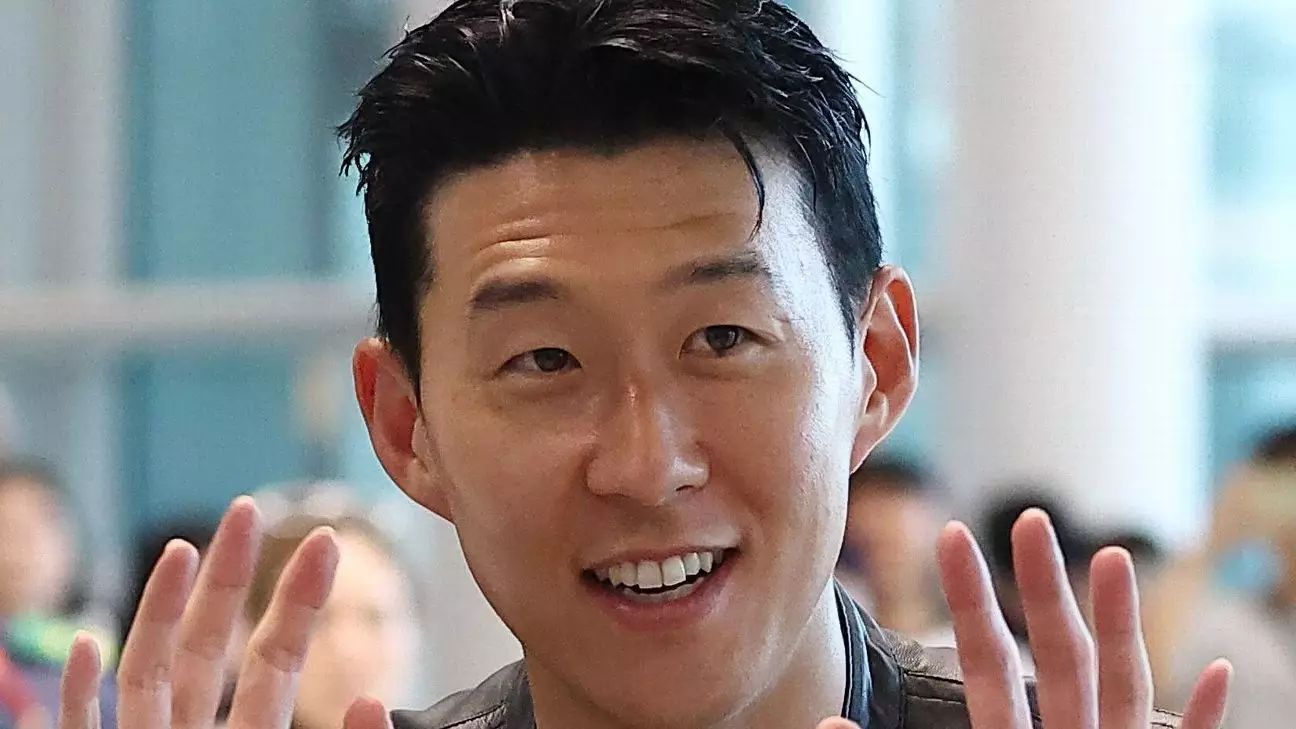Son Heung-Min’s transfer from Tottenham Hotspur to Los Angeles FC represents more than just a change of clubs; it signifies a bold strategic move that challenges traditional notions of footballing hierarchies. The South Korean superstar, one of the most recognizable faces in Asian football, is stepping into a new arena that offers lucrative financial incentives, cultural resonance, and global branding potential. While critics might focus on the risks — such as adapting to a different league and environment — Son’s decision appears rooted in a visionary pursuit of expanding his influence beyond the pitch. It reflects an understanding that the future of soccer involves not only success in European leagues but also strategic presence in major North American markets gripped by burgeoning fans and substantial commercial opportunities.
LAFC Seeks to Reinvent Its Identity Through International Stars
LAFC’s decision to acquire Son for a record-breaking transfer fee underscores the club’s broader ambitions. By investing around $26 million, they are signaling their intent to be more than a mid-tier contender; they aim for regional dominance and global relevance. Son, with his remarkable speed, technical prowess, and leadership as South Korea’s captain, brings an innate ability to resonate with diverse audiences. The club’s strategic positioning in Los Angeles, a city with the world’s largest Korean population outside Korea, isn’t coincidental. LAFC’s hopes are to cultivate a broader multicultural fan base, turning Son into a marketing powerhouse akin to Shohei Ohtani’s impact on baseball in Los Angeles. This alignment isn’t purely about sporting excellence but about seizing cultural capital within the city’s vibrant Korean and broader Asian communities, thus crafting not just a team but a cultural phenomenon.
Transition as a Catalyst for Broader Global Soccer Trends
Son’s arrival in Los Angeles also signals a paradigm shift in global soccer dynamics. Historically, European clubs have been the epicenters of football excellence and prestige. Yet, his move illustrates a clear strategy for players and clubs to leverage North America’s expanding soccer market as a viable and lucrative career path. With the 2026 FIFA World Cup set to be hosted across the continent, Son’s presence boosts the profile of Major League Soccer and its teams, signaling that top-tier talent recognizes North America as more than just a transitional league but a competitive, sustainable destination. His influence extends beyond trophies; it encompasses sponsorships, media deals, and cultural integration, all vital ingredients in transforming American soccer into a truly global sport.
Legacy Building in an Era of Cultural and Commercial Power Plays
Son’s departure from Tottenham is emotionally charged, emblematic of a player who cultivated a deep bond with fans while consistently elevating his game at the highest European level. His move to LAFC isn’t simply a career choice but a calculated step to leave a lasting legacy. The narrative surrounding him is now intertwined with broader ambitions — to influence Asian representation in global sports, to inspire young fans across continents, and to forge new commercial frontiers. This is most evident in Los Angeles — a city that values stars who can bridge cultures and markets. As Son becomes a local icon off the field, his presence fuels aspirations for greater diversity and innovation in American soccer, fostering a sense of inclusivity vital for the sport’s future growth.
The Broader Implications: A New Era for Soccer Superstars
Son Heung-Min’s transition from Tottenham to LAFC encapsulates a shift in how football stars perceive their careers and legacy. No longer confined to European elite clubs, top players are now viewing North America as a fertile ground for growth — both on and off the field. LAFC’s strategic investment is more than about one talented player; it’s about reimagining the sport’s cultural, commercial, and competitive landscape. With Son in Los Angeles, a city that embodies diversity and ambition, a new chapter begins where soccer continues to expand its global footprint, driven by stars willing to challenge conventions and forge new paths. His move is a testament to the power of individual ambition aligning with broader societal trends, ultimately redefining what it means to be a world-class footballer in the 21st century.


Leave a Reply